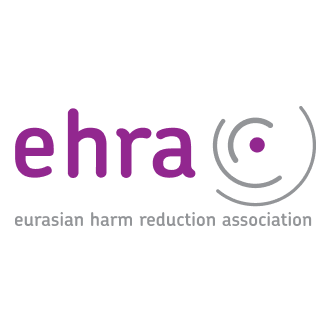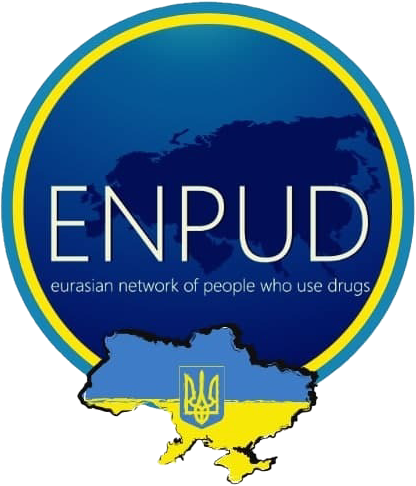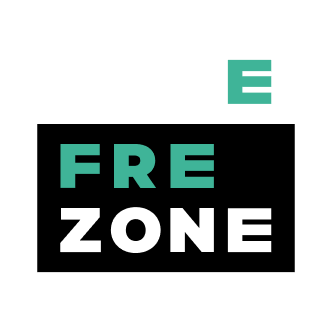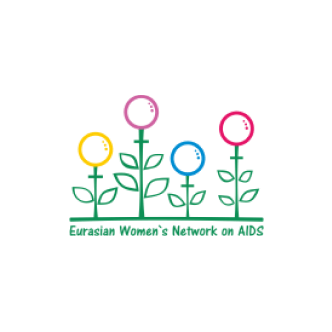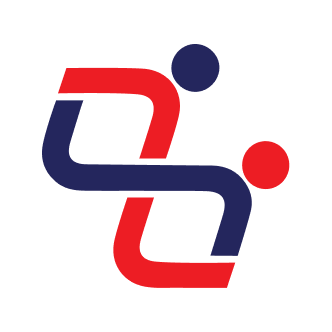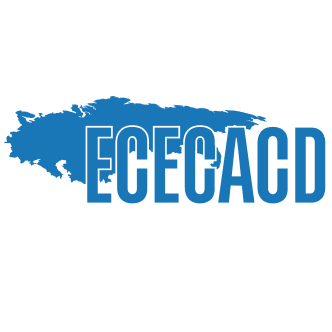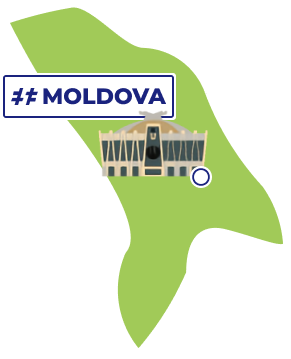
Moldova
01. HIV care cascade
ACTIVITIES
Community-led advocacy of elimination of identified critical discrepancies with the WHO prevention, testing and treatment guidelines
Progress to date
Current testing and treatment protocols analysis is finished in 7 countries (Armenia, Moldova, Georgia, Kazakhstan, Kyrgyzstan, Uzbekistan, and Ukraine) and recommendations to align the national protocols with the WHO guidelines are provided. The report is available at the link.
WHO has held the analysis of HIV testing guidelines in 6 countries of EECA – Georgia, Kazakhstan, Kyrgyzstan, Moldova, Tajikistan, Uzbekistan. The report is available at the link.
National HIV testing and ART-optimized strategies based on and aligned with the WHO recommendations were developed for 4 EECA countries – Armenia, Kazakhstan, Kyrgyzstan, Moldova.
In Armenia, Kazakhstan, Kyrgyzstan, and Moldova, all key actions related to the development and implementation of HIV testing and ART optimization strategies, in line with WHO recommendations, have been completed. According to the results of the assessment in 2022, there was a need to replace Georgia with another country to implement activities for 2023 and 2024 since the Georgian testing and treatment protocol is generally in line with the 2021 WHO recommendations for the use of ARV drugs for the prevention and treatment of HIV, and as well as other aspects of the clinical management of HIV. During project meetings different optios were discussed, and the desicion was taken to continue the activities in Armenia instead of Georgia.
Kazakhstan
- Approved – Order of the Ministry of Health of the Republic of Kazakhstan No. 774 dated 08.11.2024. This Оrder amended the Order of the Ministry of Health of the Republic of Kazakhstan dated 16.03.2023 No. 155 in the context of changes and updates in terms of implementation of the items of the Roadmap “On Implementation of Measures for HIV Prevention in the Republic of Kazakhstan for 2025-2026”, in particular:
- Amendments to paragraph 23 of the Order of the Minister of Health of the Republic of Kazakhstan dated November 30, 2020, No. KR DSM-224/2020 “On Approval of the Standard for the Organization of Medical and Social Assistance in the Field of Mental Health to the Population of the Republic of Kazakhstan” (registered in the Register of State Registration of Normative Legal Acts No. 21712) regarding the provision of PTAO services at the hospital level are scheduled for the 3rd quarter of 2026.
- Amendments and additions to the Clinical Protocols: “HIV infection in adults”, ‘HIV infection in children’, ‘HIV/TB co-infection’, taking into account the update of the best international practices, is scheduled for the 4th quarter of 2025.
- Approved – Order of the Minister of Health of the Republic of Kazakhstan dated June 24, 2024 № 29 on amendments to the Order of the Minister of Health of the Republic of Kazakhstan dated December 3, 2020, No. KR DSM-231/2020 “On Approval of the Rules for Investigation of Cases of HIV Infection among the Population”.
- Approved – Order of the Ministry of Health of the Republic of Kazakhstan dated July 11, 2024 No. 55 “On Amendments and Additions to the Order of the Ministry of Health of the Republic of Kazakhstan dated October 19, 2020 No. KR DSM-137/2020 ‘On Approval of the Rules for Conducting Measures for the Prevention of HIV Infection’.
- Drafted – Amendments to the Code of the Republic of Kazakhstan dated July 7, 2020 “On the Health of the People and the Health Care System” on HIV infection”. It is expected that at the beginning of 2025, it will be approved.
Moldova
- Approved – National Clinical Protocol “Treatment of Viral Hepatitis C in Adults” approved by the Order of the Ministry of Health of the Republic of Moldova dated 11.10.2024.
- Drafted – National Clinical Protocol “Pre-exposure prophylaxis of HLV infection (PrEP)”.
Decentralization of HIV testing services through integration to primary healthcare
Progress to date
Synthesis Report on assessment of readiness of health systems to decentralize HIV testing services in 5 countries of the EECA region is developed and can be found at the link.
The road maps were finalized in Armenia, Georgia, Moldova, Kazakhstan, and Kyrgyzstan.
Amendments related to HIV testing in Kazakhstan and Georgia were approved at the end of 2023. This, with close collaboration with local and international consultants, enabled in 2024 to focus on implementing normative acts through various measures, such as training sessions, advocacy campaigns, and strengthening cooperation among local CSOs and stakeholders into practice.
Local CSOs/community-based organizations, already involved in HIV testing, will play a key role in the decentralization of HIV treatment, further strengthening access to care at the community level.
1. Georgia
Georgia has completed the process of developing and approving regulations for decentralizing HIV testing and treatment. The HIV strategy for 2023–2025 was approved, and amendments to the national HIV/AIDS program have been made, including the creation of new testing and outpatient treatment points in new regions (Telavi, Akhaltsikhe, Poti, Khashuri). Measures for centralized supply of HIV tests have also been introduced. These changes came into force in January 2024.
Amendments approved by the Government of Georgia, on December 30, 2024. Annex 7 of the program regulates HIV services and indicates that decentralized testing with 2 different test kits will be implemented as a pilot together with sub contractor organizations and NGOs working with high risk groups in 8 cities of country – Tbilisi, Telavi, Khashuri, Akhsltsike, Kutaisi, Zugdidi, Poti and Batumi.
2. Kazakhstan
In Kazakhstan, in 3 cities: Almaty, Pavlodar and Ustkamenogorsk HIV testing is available through CSO, community based organizations: “You are not alone”, “Answer” and “Kemel Arma Foundation”. The document was registered in the Ministry of Justice of the Republic of Kazakhstan on December 4, 2023 № 33715. The adopted and entered into force document approving tariffs for HIV servies. In addition, the Roadmap to prevent HIV infection in the Republic of Kazakhstan for 2023-2026 was approved by Order of the Ministry of Health No. 155 dated March 16, 2023.
Assessment of OAT sustainability
Progress to date
Assessment of the sustainability of the opioid agonist therapy programme in the context of transition from donor support to domestic funding was conducted in Moldova and Tajikistan. The reports are being finalized and sent for design, they’ll be published by the end of Q1 2023. The assessments in Albania, Kyrgyzstan and Ukraine are ongoing and will be finalized in 2023.
Reassessing the sustainability of the opioid agonist therapy programme within the context of transition from donor support to domestic funding took place in 2022 in Tajikistan and Moldova, reports were published in 2023.
In 2023, the reassessment of the sustainability of the opioid agonist therapy programme within the context of transition from donor support to domestic funding also was finished in Ukraine, the report can be found at the link.
Community groups conduct community-led assessment of national quality standards in accordance to IDUIT and organize dialogue with service providers and MOH/local authorities
Progress to date
Moldova
PULS Communitar conducted CLM study to evaluate OAT programs in the Republic of Moldova, identify the level of the availability and acceptability of programs, outline achievements, and identify and evaluate difficulties faced by the program participants. Report with findings and conclusions was prepared and presented on the meeting with service providers and decision makers. Next steps and recommendations for CCM were elaborated.
GENDERDOC-M conducted a CLM study to identify the barriers in access to PrEP among MSM/TG. The results were presented to the Key Affected Populations (KAP) committee. After the presentation, it was strongly recommended to showcase these results at the National Dialogue event. The aim is to leverage the platform to advocate for a comprehensive revision of the National Clinical Protocol on Pre-Exposure Prophylaxis (PrEP) in the first quarter of 2024. This strategic move aligns with the commitment to fostering meaningful changes in the national approach to PrEP in response to the insights gained through the CLM survey.
Kazakhstan
Forum of PWUD conducted a study on the impact of the absence of take-home OAT on the life of patients and adherence to treatment. Report in Russian is prepared. Meeting with CCM is planned to be organized in January 2024.
Georgia
Rubikoni conducted a study on the impact of the absence of take-home OAT on the life of patients and adherence to treatment. Furthermore, the meeting with service providers and decision makers was organized, where results of the CLM were presented and discussed recommendations and next steps.
Kyrgyzstan
Equal to equal conducted a study on the client satisfaction with OAT. Report in Russian was prepared. Moreover, the meeting with service providers and decision makers was organized, where results of the CLM were presented and discussed recommendations and next steps.
Tajikistan
Intighob (Initiative group based on SPIN PLUS) conducted a study of the impact of the absence of take-home OAT on the life of patients and adherence to treatment. Report in Russian language was prepared. Moreover, the meetings with service providers and decision makers was organized, where results of the CLM were presented and discussed recommendations and next steps.
Armenia
“New Generation” conducted Community Based Assessment of HIV Services Provided to MSM Living With HIV In Armenia through a focus group with broad number of experts and MSM community members (including representatives from CCM). The results were included to “Funding Priorities of Civil Society and Communities Most Affected by HIV, Tuberculosis and Malaria” by Global Fund under the number 9 (The funding priorities and minutes from CRG group meeting attached). These priorities are in active use to prepare an application for the Global Fund grant in Armenia. In addition, results are in active use in the National dialogue now.
Integration of community-led monitoring (CLM) into the health care systems of countries in the EECA region to assure the quality of services for key populations (KPs)
Progress to date
Practical handbook on community-led monitoring tools was developed in English and Russian languages. The checklist with EHRA and other partners for CLM was discussed and agreed upon.
On 2-8 December 2022, specialists from the Eurasian Harm Reduction Association (EHRA) conducted regional online training “Community-Led Monitoring Methods” for the representatives of community organizations in the CEECA region. The training was attended by 38 representatives of organizations from different vulnerable communities in the CEECA region. The aim of the training consisting of three online sessions was to train leaders of self-organizations from different key communities in the CEECA region to understand, which role CLM can play in their advocacy work, how to formulate the proper problem and research question for CLM, and which of the different methodologies can most effectively provide the data needed for advocacy. Video recordings of the training, as well as presentations can be found at the link.
Following the CLM Handbook, developed in 2022, integration of CLM into the healthcare system can be ensured through productive and sustainable participation of community representatives in the decision-making process, mainly within CCM, and through national consultations with CCM and other health sector coordination bodies on key needs for CLM and its findings and recommendations on improving of health services.
CLM has been conducted in all planned countries. Results were presented in 5 countries and protocols were received (Moldova, Georgia, Tajikistan, Kazakhstan and Kyrgyzstan). In Armenia, the results of the CLM are in active use in the National dialogue now. The focus group with broad number of experts and MSM community members (including representatives from CCM) was conducted, and based on the results PrEP was identified as a key priority and included to “Funding Priorities of Civil Society and Communities Most Affected by HIV, Tuberculosis and Malaria” by Global Fund under the number 9 (The funding priorities and minutes from CRG group meeting attached). These priorities are in active use to prepare an application for the Global Fund grant in Armenia.
Following CLM Handbook, developed in 2022, integration of CLM into healthcare system can be ensured through productive and sustainable participation of community representatives in decision-making process, mainly within CCM, and through national consultations with CCM and other health sector coordination bodies on key needs for CLM and its findings and recommendations on improving of health services. Within EHRA activities, CLM results in all countries in Georgia, Moldova, Kyrgyzstan, Kazakhstan and Tajikistan were presented and reviewed in CCMs and/or in other healthcare managing bodies. Protocol/minutes of the CCM meeting or other health authority body, based on the conducted national consultations with CCM and other health sector coordination bodies on key needs for CLM and discussed how results of CLM will help to improve services and integration of them into the healthcare system. What is more, additionally to presentation of CLM results, this year consultants in Georgia, Moldova, Kyrgyzstan and Kazakhstan prepared requests to healthcare managing bodies by asking provide information on how CLM results were being implemented. EHRA prepared a final publication – report, which draws on the three-year SoS 2.0. project of the EHRA to support community-led monitoring (CLM) initiatives for opioid agonist therapy (OAT) and the findings and results of community groups in Georgia, Moldova, Kazakhstan, Kyrgyzstan, and Tajikistan, offering insights into best practices and lessons learnt.
Moldova
PULS Communitar conducted CLM study to evaluate OAT programs in the Republic of Moldova, identify the level of the availability and acceptability of programs, outline achievements, and identify and evaluate difficulties faced by the program participants. Report with findings and conclusions was prepared and presented on the meeting with service providers and decision makers.
GENDERDOC-M conducted a CLM study to identify the barriers in access to PrEP among MSM/TG. The results were presented to the Key Affected Populations (KAP) committee. After the presentation, it was strongly recommended to showcase these results at the National Dialogue event. Following dialogues and agreements with the Protocol revision experts, the recommendations were formally presented on August 23, 2024, during the Round Table on the National Clinical Protocol on PrEP. The updated draft protocol, which includes the proposed recommendations, is currently under review by government authorities. In addition, the approval of new service standards, which will also include CLM, is expected in June 2025.
Kazakhstan
Forum of PWUD conducted a study on the impact of the absence of take-home OAT on the life of patients and adherence to treatment. Report in Russian is prepared.
Georgia
Rubikoni conducted a study on the impact of the absence of take-home OAT on the life of patients and adherence to treatment. Furthermore, the meeting with service providers and decision makers was organized, where results of the CLM were presented and discussed recommendations and next steps. In addition, based on ECOM recommendations, the working group developed CLM mechanisms and a special chapter was included in the Standards for Management of Public Health Interventions (PrEP Protocol). The working group included representatives from the National Centre for Disease Control and Public Health (NCDC), the Research Centre for Infectious Diseases, AIDS and Clinical Immunology, NGOs and MSM representatives, including members of the András team. Letter received from NCDC in support of the modified protocol.
Kyrgyzstan
Equal to equal conducted a study on the client satisfaction with OAT. Report in Russian was prepared. Moreover, the meeting with service providers and decision makers was organized, where results of the CLM were presented and discussed recommendations and next steps.
Tajikistan
Intighob (Initiative group based on SPIN PLUS) conducted a study of the impact of the absence of take-home OAT on the life of patients and adherence to treatment. Report in Russian language was prepared. Moreover, the meetings with service providers and decision makers was organized, where results of the CLM were presented and discussed recommendations and next steps.
Armenia
“New Generation” conducted Community Based Assessment of HIV Services Provided to MSM Living With HIV In Armenia through a focus group with broad number of experts and MSM community members (including representatives from CCM). The results were included to “Funding Priorities of Civil Society and Communities Most Affected by HIV, Tuberculosis and Malaria” by Global Fund under the number 9 (The funding priorities and minutes from CRG group meeting attached). The National Guidelines on PrEP for HIV infection have been officially approved under Order No. 6241-L by the Minister of Health, dated 13 November 2024. These guidelines are now available on the Ministry of Health’s official website.
Provision of HIV prevention services with precautions against COVID-19
Progress to date
Work on shelters has expanded – in addition to 5 shelters for working with women who use drugs in conditions of violence (Ukraine, Serbia, North Macedonia, Kazakhstan), support for flexible shelters for representatives of the LGBT community in Kazakhstan, Uzbekistan, Kyrgyzstan and Tajikistan has been added. The program was distinguished by a special programmatic approach to working with clients – about 3,200 clients received material assistance in the form of food packages (Georgia, Kazakhstan). PPE support in Kaz for migrants and KGP (124,000 disposable masks, 1,000 antiseptics); CLM to provide quality services for clients of OST programs in 7 countries.
National Contingency Planning
Progress to date
Supporting key group populations in a COVID setting “General contingency planning guide developed in the frames of the C19RM is available here.
Guide by APH for Contingency Planning for Key Population HIV Services during COVID-19 and Other Emergencies for North Macedonia, Serbia, Bosnia and Herzegovina, Montenegro, Moldova, Georgia, Kazakhstan, Uzbekistan, Tajikistan and Kyrgyzstan in English is available at the link https://aph.org.ua/en/eeca/ in the folders with the names of each country.
Decentralization of HIV treatment through integration to primary healthcare
Progress to date
Synthesis Report on assessment of health systems to decentralize HIV treatment services in 5 countries of the EECA is developed and can be found at the link.
The road maps were finalized in Armenia, Georgia, Moldova, Kazakhstan, and Kyrgyzstan.
Technical support in implementation of long-term contracts for ARV procurement
Progress to date
Advocacy plans were developed for Kazakhstan, Kyrgyzstan and Moldova to further contribute to ARV price reduction. Official letters were sent to pharmaceutical companies and government authorities regarding further price reduction for ARVs, keeping the simplified procedures of registration of medicines and medical devices, etc.
The national experts in Kazakhstan, Kyrgyzstan, and Moldova implemented the activities envisaged by the developed advocacy plans.
The analysis of the existing legislation in the field of procurement of medicines was carried out, and the list of normative acts that prevent the Center for Centralized Public Procurement in the field of Health from procuring medicines and consumables through international procurement platforms was identified. The analysis of the National HIV/AIDS Program Needs for 2024 from the state budget was carried out. Based on this analysis, the changes were made based on the optimization of the treatment schemes for 2024. The prices for procurement of medicines were analyzed.
In Moldova, to identify potential obstacles and opportunities for the introduction of a procurement mechanism through international procurement agencies, a comprehensive review of the current legislation on procurement of medical devices and medicines was conducted. An assessment of the current clinical protocol was conducted to develop recommendations for the inclusion of ART drug resistance monitoring. These recommendations were presented to the CCM HIV Working Group, and efforts are ongoing to advocate for their inclusion in the 2025 revision of the National HIV Protocol.
ECAT meeting was held on December 4–6 in Tbilisi, Georgia.
Reports on procurement monitoring of CD4 and VL tests as well as the rapid tests for HIV implemented in 2023 are published.
Technical support in implementation of simplified registration for ARVs
Progress to date
Advocacy plans were developed for Kazakhstan, Kyrgyzstan and Moldova to further contribute to ARV price reduction. Official letters were sent to pharmaceutical companies and government authorities regarding further price reduction for ARVs, keeping the simplified procedures of registration of medicines and medical devices, etc.
The national experts in Kazakhstan, Kyrgyzstan, and Moldova implemented the activities envisaged by the developed advocacy plans.
The analysis of the existing legislation in the field of procurement of medicines was carried out, and the list of normative acts that prevent the Center for Centralized Public Procurement in the field of Health from procuring medicines and consumables through international procurement platforms was identified. The analysis of the National HIV/AIDS Program Needs for 2024 from the state budget was carried out. Based on this analysis, the changes were made based on the optimization of the treatment schemes for 2024. The prices for procurement of medicines were analyzed.
ECAT meeting was held on December 4–6 in Tbilisi, Georgia.
Reports on procurement monitoring of CD4 and VL tests as well as the rapid tests for HIV implemented in 2023 are published.
Advocacy for engagement of patient community experts into national working groups to develop and adopt medicine procurement lists and technical procurement documentation
Progress to date
Advocacy plans were developed for Kazakhstan, Kyrgyzstan and Moldova to further contribute to ARV price reduction. Official letters were sent to pharmaceutical companies and government authorities regarding further price reduction for ARVs, keeping the simplified procedures of registration of medicines and medical devices, etc.
The national experts in Kazakhstan, Kyrgyzstan, and Moldova implemented the activities envisaged by the developed advocacy plans.
The workshop was conducted on December 14 to develop comprehensive skills and knowledge of the participants, ensuring their readiness to effectively participate in procurement processes and ensure access to medicines for HIV/TB treatment.
In Kazakhstan, comprehensive justification documents were prepared to demonstrate the benefits and necessity of transferring procurement responsibilities to the Sole Distributor. The legal rationale was presented to a wide range of stakeholders at the working meeting “On expanding access to essential medicines for people living with HIV by amending the legal acts regulating the procurement of medicines” held in Q4 2024.
In Kyrgyzstan, an advocacy strategy was developed based on an analysis of the procurement of ARV tests, HIV diagnostic and treatment monitoring products procured with public funds and humanitarian supplies funded by the Global Fund (GF) and UNDP. Official letters were also sent to the State Enterprise “Kyrgyzpharmacy” and the GF, UNDP outlining potential measures to optimize procurement processes and reduce the cost of ARVs and diagnostic tests. In addition, a number of informal discussions were held with the Kyrgyzpharmacy SE, the Republican Center for HIV/AIDS Control and GF/UNDP on further optimization of procurement strategies, expansion of the range of ARVs and diagnostic tests procured with public funds, and the possibility of reducing the cost of certain ARVs and diagnostic tools. A meeting was also held with experts engaged by the GF and the GF/UNDP to prepare for the transfer of GF grant management to national agencies.
In Moldova, to identify potential obstacles and opportunities for the introduction of a procurement mechanism through international procurement agencies, a comprehensive review of the current legislation on procurement of medical devices and medicines was conducted. An assessment of the current clinical protocol was conducted to develop recommendations for the inclusion of ART drug resistance monitoring. These recommendations were presented to the CCM HIV Working Group, and efforts are ongoing to advocate for their inclusion in the 2025 revision of the National HIV Protocol.
ECAT meeting was held on December 4–6 in Tbilisi, Georgia.
Reports on procurement monitoring of CD4 and VL tests as well as the rapid tests for HIV implemented in 2023 are published.
Community-led advocacy of elimination of identified critical discrepancies with the WHO prevention, testing and treatment guidelines
Progress to date
Current testing and treatment protocols analysis is finished in 7 countries (Armenia, Moldova, Georgia, Kazakhstan, Kyrgyzstan, Uzbekistan, and Ukraine) and recommendations to align the national protocols with the WHO guidelines are provided. The report is available at the link.
WHO has held the analysis of HIV testing guidelines in 6 countries of EECA – Georgia, Kazakhstan, Kyrgyzstan, Moldova, Tajikistan, Uzbekistan. The report is available at the link.
National HIV testing and ART-optimized strategies based on and aligned with the WHO recommendations were developed for 4 EECA countries – Armenia, Kazakhstan, Kyrgyzstan, Moldova.
In Armenia, Kazakhstan, Kyrgyzstan, and Moldova, all key actions related to the development and implementation of HIV testing and ART optimization strategies, in line with WHO recommendations, have been completed. According to the results of the assessment in 2022, there was a need to replace Georgia with another country to implement activities for 2023 and 2024 since the Georgian testing and treatment protocol is generally in line with the 2021 WHO recommendations for the use of ARV drugs for the prevention and treatment of HIV, and as well as other aspects of the clinical management of HIV. During project meetings different optios were discussed, and the desicion was taken to continue the activities in Armenia instead of Georgia.
Kazakhstan
- Approved – Order of the Ministry of Health of the Republic of Kazakhstan No. 774 dated 08.11.2024. This Оrder amended the Order of the Ministry of Health of the Republic of Kazakhstan dated 16.03.2023 No. 155 in the context of changes and updates in terms of implementation of the items of the Roadmap “On Implementation of Measures for HIV Prevention in the Republic of Kazakhstan for 2025-2026”, in particular:
- Amendments to paragraph 23 of the Order of the Minister of Health of the Republic of Kazakhstan dated November 30, 2020, No. KR DSM-224/2020 “On Approval of the Standard for the Organization of Medical and Social Assistance in the Field of Mental Health to the Population of the Republic of Kazakhstan” (registered in the Register of State Registration of Normative Legal Acts No. 21712) regarding the provision of PTAO services at the hospital level are scheduled for the 3rd quarter of 2026.
- Amendments and additions to the Clinical Protocols: “HIV infection in adults”, ‘HIV infection in children’, ‘HIV/TB co-infection’, taking into account the update of the best international practices, is scheduled for the 4th quarter of 2025.
- Approved – Order of the Minister of Health of the Republic of Kazakhstan dated June 24, 2024 № 29 on amendments to the Order of the Minister of Health of the Republic of Kazakhstan dated December 3, 2020, No. KR DSM-231/2020 “On Approval of the Rules for Investigation of Cases of HIV Infection among the Population”.
- Approved – Order of the Ministry of Health of the Republic of Kazakhstan dated July 11, 2024 No. 55 “On Amendments and Additions to the Order of the Ministry of Health of the Republic of Kazakhstan dated October 19, 2020 No. KR DSM-137/2020 ‘On Approval of the Rules for Conducting Measures for the Prevention of HIV Infection’.
- Drafted – Amendments to the Code of the Republic of Kazakhstan dated July 7, 2020 “On the Health of the People and the Health Care System” on HIV infection”. It is expected that at the beginning of 2025, it will be approved.
Moldova
- Approved – National Clinical Protocol “Treatment of Viral Hepatitis C in Adults” approved by the Order of the Ministry of Health of the Republic of Moldova dated 11.10.2024.
- Drafted – National Clinical Protocol “Pre-exposure prophylaxis of HLV infection (PrEP)”.
02. Removing HR/gender barriers
ACTIVITIES
REAct (https://react-aph.org/): Monitoring of human rights violations and discrimination against PLHIV and KPs. Responding to such cases through provision or referring to legal or social services to victims and through advocacy actions. In Georgia, Kyrgyzstan, Moldova and Tajikistan, REAct system was initiated within SoS_project#1.0 in 2020, and in 2022 is transferred to national funding, meanwhile APH continues to provide technical support to users. In Ukraine, REAct was implemented in 2019 and is functional within national GF grant. REAct system is supported by APH in Uzbekistan for 2022-2023, in 5 Balkan countries – for 2022-2024, and in Armenia and Azerbaijan – for 2023-2024. At the same time, regional networks ECOM and ENPUD started to use REAct program for documentation in several countries of the region and are supported for 2022-2024 within SoS_project#2.0 grant.
Progress to date
Cumulatively, during 2022 there were registered 6700+ cases in 13 countries (Albania, Armenia, Bosnia and Herzegovina, Georgia, North Macedonia, Moldova, Montenegro, Kazakhstan, Kyrgyzstan, Tajikistan, Serbia, Ukraine, Uzbekistan) involving 170+ CBOs, as well as regional networks such as ECOM (in Uzbekistan, Tajikistan, Armenia, Kazakhstan, Kyrgyzstan) and ENPUD (Georgia, Moldova, Ukraine, Kyrgyzstan, Kazakhstan, Tajikistan, Belarus).
The following publications are available:
- Statistic country reports by APH on human rights violations based on REAct data collected in 2021 in Kyrgyzstan, in Georgia, in Moldova, in Tajikistan.
- Protectors or Perpetrators: the impact of unlawful policing on human rights and HIV. Join analytical publication in partnership with Frontline AIDS, Alliance for Public Health (Ukraine, Kyrgyzstan, Tajikistan, Moldova, Georgia, Uzbekistan), AIDS Foundation (South Africa), Gender Dynamix.
- Report on the results of the analysis of the Hotline calls by APH: Domestic and other forms of violence against women living with HIV and women in key populations during the COVID-19 pandemic in Tajikistan.
- REAct Statistical Report for the 1st half of 2022 by APH. Violations of the rights of people living with HIV and representatives of vulnerable groups in Georgia.
Situational Report by APH: Drug policy in Georgia and Challenges. - Series of publications by APH based on REAct data within regional campaign “16 days against gender-based violence”.
REAct system is available and functional at the national level in the following counties. It enables documentation of cases of human rights violations: Albania (45 cases), Armenia (182), Azerbaijan (174), B&H (70), Montenegro (60), Kazakhstan (363), North Macedonia (42), Tajikistan (1155), Serbia (24), Uzbekistan (835). More detailed data of 2023 is available in REAct Regional Digest and REAct website.
Cumulatively in 10 countries, 49,9% of documented cases were responded by REActors, their organizations or through referral to partner NGOs or institutions. During 2023 in 10 countries, there were provided 2162 consultations about human rights, 1022 consultations with professional lawyers. In 168 cases REActors helped to draft simple legal documents, such as complains or statement to police, in 236 cases represented client’s interests in medical facilities, assisted in getting medical services and support, in 336 cases – accompanied the client in the initial appeal to the police. There were at least 20 strategic court cases, and at least 162 cases were used for shadow reports to UN Treaty Bodies.
Cumulatively in 8 countries (Armenia, Azerbaijan, Kazakhstan, Albania, Bosnia and Herzegovina, Montenegro, North Macedonia, Serbia) 56,2% of documented cases were responded by REActors, their organizations or through referral to partner NGOs or institutions (https://drive.google.com/drive/folders/1wtJaecXERatg8cmrAE1mzaoshtdLQY_w). Numerous success stories of cases resolutions are available at REAct website.
Ensure a monitoring system for the implementation of the human right to health in prisons through national preventive mechanisms
Progress to date
An analysis of the current situation regarding the development and implementation of tools to ensure access to harm reduction services with a focus on OST was conducted by FreeZone in Georgia and in Kyrgyzstan.
An analysis of the current functioning of NPMs was carried out by FreeZone in Moldova and Kazakhstan.
For Moldova and Kazakhstan, Information on key indicators of the incidence of socially dangerous diseases in penitentiary institutions was collected, namely data on the total number of convicts held in penitentiary institutions; detailed information on the number of people living with HIV infection; the number of detected cases of tuberculosis; the number of convicts who were provided with treatment for viral hepatitis. The results can be found at the links: Moldova, Kazakhstan.
In Georgia, the Overdose prevention training module was developed for prison staff. The Module is aimed at training the prison employees involved in the release preparation programs. The training module contains both theoretical material, as well as practical exercises. The Module details overdose prevention mechanisms and interventions that are necessary in case to prevent death.
In Kyrgyzstan, meetings were held with the Ministry of Justice, the Ministry of Finance, etc. on the expanding health services, including HIV services in the penitentiary institutions; extended discussions were initiated at the Country Coordination Committee meetings and round tables on issues related to expanding government funding for penitentiary institutions.
In Moldova, temporary accreditation of the training program for the profession of “peer-to-peer consultant” in penal institutions of Moldova was obtained, and activities related to advocating for the inclusion of the position of “peer-to-peer consultant” in the list of positions in penitentiary institutions were provided.
In Kazakhstan, on November 30, 2023, a meeting was organized to discuss the current issues of compulsory social health insurance, the guaranteed volume of free medical care services for representatives of the PWUD community, drug provision, and diagnosis of diseases among prisoners. To intensify community participation in the mechanisms to ensure the implementation of state policy on combating TB and HIV/AIDS, the prisoners and ex-prisoners community member was included in the CLM Working Group during the Country Coordination Committee meeting on November 3rd, 2023.
In Ukraine, communication was ensured with the relevant government bodies (Center for Health Protection of the Ministry of Health of Ukraine, the Health Center of the State Criminal-Executive Service of Ukraine, and others) to advocate for the updated SOP standard. Discussions were initiated for the preliminary approval of the SOP “Diagnostics, treatment and support of PLHIV (and suspected HIV) in medical points of the Health Center of the State Criminal-Executive Service of Ukraine”. An updated SOP was presented and discussed within the Working Group on ensuring the continuity of services in the penitentiary institutions. An order of the Health Center of the State Criminal-Executive Service of Ukraine on the approval of SOP has been prepared, signed, and published.
Moldova
10 training sessions for selected peer-to-peer consultants were held on the basis of the Peer Counselor’s Manual to train consultants among prisoners. Each session lasted 6 hours and included theoretical and practical components of counselor training. As a result of this training, two prisoners from Penitentiary Institution #4 and, Penitentiary Institution #7 were prepared as peer counselors (1 Male, 1 Female) and started provision of services to inmates on a voluntary basis.
Kazakhstan
Cooperation between NGO “Kazakhstan Union of People Living with HIV” and Department of organization of medical care of the Ministry of Health of the Republic of Kazakhstan and Committee of Criminal Executive System of the Ministry of Internal Affairs of the Republic of Kazakhstan was established, that led to improved service provision for prisoners. Increase in the state order for work with people released from prison was advocated.
Kyrgyzstan
In order to increase state funding for health care services in the penitentiary system, negotiations were held with representatives of the State Service of Penitentiary Execution (SSPE). As a result of negotiations and communication, the SSPE increased the planned budget for health services in the penitentiary system in 2025 to 25 million KGS (compared to 13 million KGS in 2024).
Consultant is monitoring the activities related to the Program on HIV and Hemocontact Viral Hepatitis 2024-2027 in the Republic of Kyrgyzstan regarding people who are incarcerated. The work is in place to ensure inclusion of necessary services for prisoners – needle exchange programs, OAT, and conducting advocacy to ensure state funding for HIV, TB, hepatitis diagnostic services in the penitentiary system, and support for released prisoners.
Georgia
Due to the unstable political situation in the country regarding the adoption of the law on foreign agents, the project activities were not implemented.
Women-led research, “Monitoring of violence against women living with HIV”, including factors preventing support/help seeking behaviors for women living with HIV who experience violence
Progress to date
Community-led monitoring on types of violence against women living with HIV was held in Kazakhstan (in English and in Russian) and Moldova (in English and in Russian).
Developing and launching call for “Gender and HIV” small grants with special eligibility focus on Monitoring situation with human rights of Trans* people
Progress to date
Small Grants Programme with 4 selected projects run by grass-root NGOs in 2022 included:
- “National Trans Coalition” NGO with the project titled “HIV prevention in Armenia through gender mainstreaming” (Armenia);
- “The Public Association “Union for Equity and Health” NGO with the project titled “Gender Equality for sex workers” (Moldova);
- “Rromnjako Ilo” Zrenjanin he Public Association” NGO with the project titled “Check your health – Equality for Trans Roma and Roma women/girls sex workers” (Serbia);
- “NON-GOVERNMENTAL ORGANIZATION «NASHA DOPOMOGA»” with the project titled “RIGHT TO HEALTH!” (Ukraine).
- The project applicant is the organization “Albanian Association of People Living with HIV/AIDS (PLWHA)” with the project titled “New approach on transforming the spiral of exclusion and marginalization, towards the right of recognition before the law, gender-diverse and reduce the violence in health-care settings for trans persons in Albania”.
- The project applicant is the “National Trans Coalition” NGO with the project titled “Strategic pathway to remove structural barriers for trans* communities to PrEP and PEP services in Armenia”. The proposed project has been designed to establish favorable conditions for improving access of Trans* communities to PrEP and PEP services in Armenia.
- The project applicant is the organization “STAR STAR” Skopje with the project titled “Community Mobilization to Mitigate Funding Cuts and Gender Inequality in National HIV Programs for Sex Workers in North Macedonia”. The project is envisioned as a response to the latest developments in North Macedonia related to provision and delivery of HIV prevention services for key populations.
- The project applicant is the organization “Rromnjako Ilo” Zrenjanin he Public Association” NGO with the project titled “Supporting health wellbeing and safety of Trans and Intersex Roma, sex workers and HIV+”.
In 2024, grants “Gender and HIV” were implemented in Albania, Georgia, Moldova and Ukraine.
Moldova
GENDERDOC-M, alongside a parent support group, aimed to create a safe and inclusive environment for transgender and gender-nonconforming youth. Two formal partnerships with youth clinics expanded access to health services and 24/7 hotline support. Parent education sessions led to increased understanding, school negotiations for name recognition, and medical referrals. As a result, a strategic plan for 2025 includes engaging health and education ministries to address systemic barriers.
Georgia
The Queer Association Temida established an informal network of trans-friendly professionals across three cities, despite restrictive anti-LGBT laws. The network held two meetings to discuss the legal landscape and continued service delivery. A memorandum with Psychea Mental Health Center helped maintain access to gender-affirming care. A peer educator training course was launched, and two trained educators provided online consultations to 32 beneficiaries, offering support on HIV and gender-affirming care.
Ukraine
The “Help Is Near” project by HPLGBT produced a comprehensive report on barriers and solutions in trans health services, especially for intersectional groups like sex workers and those using psychoactive substances. Recommendations for service decentralization were developed and are planned to be presented to the CCM in early 2025. HPLGBT aims to integrate these recommendations into national funding requests to the Global Fund, ensuring sustained support for marginalized trans communities.
Development and promotion of the Guiding principles (recommendations, model legislation etc.) on drug policy for the EECA region with specific advocacy efforts for reforming drug policy and decriminalization of personal drug use
Progress to date
The Guiding Principles document is developed and approved by the ECECACD. The first draft of the document was reviewed and discussed during in-person meeting of Commissioners on November 2, 2022 (the Minutes extract with provided recommendations to the document are available upon request). The document was amended accordingly to the recommendations and sent for the second review by Commissioners. Commissioners provided their recommendations and corrections to the text (the letters and texts with corrections are available upon request). Final amendments was done, the document was completed and finally approved by Commissioners (relevant correspondence is available upon request). The final version of the Guiding principles is under design.
In 2023, the EECA Drug Policy Commission conducted two country visits: to Kyrgyzstan on 19-21 June, 2023, to Moldova on 11-13 September, 2023 to present and promote the ‘Guiding Principles’ during the meetings at the highest political level. Prime Ministers of these countries, Ministers oh Health, Ministers of Internal Affairs, Members of the Parliament, other officials have received a copy of this document. Commissioners provided their expertise and arguments in support of changes to drug legislation based on the pathways described in the document.
In addition, Commissioners participated in several international Conferences to promote Guiding Principles and advocate for a change in drug policy: International Harm Reduction Conference, Melbourne (Australia), European Conference on Law Enforcement and Public Health, Umeå (Sweden), Drug policy discussions in Georgia. August 3, 2023, Public discussion of the state strategy on drugs, December 18, 2023 Kyiv, Ukraine.
Moreover, the recent OHCHR Report Human rights challenges in addressing and countering all aspects of the world drug problem” contains direct referring to Guiding Principles.
Kazakhstan
A high-level meeting in Astana, attended by President Kassym-Jomart Tokayev and ECECACD Commissioners, successfully prevented the closure of opioid agonist therapy (OAT) programs in Kazakhstan. The government secured OAT medicine procurement for 2025, ensuring continued treatment for opioid dependence. https://ececacd.org/high-level-meeting-in-astana-on-drug-policy-and-opioid-agonist-therapy/
Kyrgyzstan
In 2024, Kyrgyzstan replaced the term “registry of people with drug dependency” with “dynamic monitoring,” shifting from a law enforcement focus to a medical record approach. Legislative amendments were made, and a working group drafted seven subordinate legal acts to support this transition, with further government review ongoing into 2025.
https://cbd.minjust.gov.kg/4-5260/edition/1939/ru
https://cbd.minjust.gov.kg/4-5301/edition/3727/ru
Moldova
ECECACD engagement in Moldova throughout 2024 led to discussions on reforming the National Anti-Drug Commission, proposing its transfer to the Cabinet of Ministers. A December 2024 national meeting resulted in a recommendation to develop a new National Drug Strategy in 2025. The National Commission on Drugs officially endorsed this, forming an inter-ministerial working group to oversee its development. https://ececacd.org/planning-drug-policy-reform-in-moldova/
Georgia
In response to Georgia’s rollback towards undemocratic, pro-Russian approaches, we have taken emergency measures to prevent the deterioration of the country’s drug policy situation. A multi-stakeholder dialogue meeting on harm reduction and drug policy was held in May 2024, and “Recommendations to community organizations on risk reduction related to legal acts enacted in 2024” were emergently developed, striving to respond to the crisis. In addition, in December 2024, the Recommendations to community organizations on risk reduction related to some legal acts enacted in 2024, were developed and distributed among key actors and stakeholders to inform Georgian leaders and activists of LGBT community organizations what steps can be taken to reduce the risks appeared after enacting several new laws, particularly the law “On Protection of Family Values and Minors”.
03. Budget advocacy
ACTIVITIES
REGIONAL: regional dashboard (with 2 integrated portals) + preliminary results to be reflected on the timeframe / deadlines, at least for this year
Progress to date
ToR for the dashboard is under development; methodologies and approaches to data collection for the social contacting and sustainability and transition portals are being updated.
The concepts and the ToRs for the database, BI analytics module and website to present the information from the dashboard were developed.
Legal framework for financing HIV services from domestic funds – development and approval
Progress to date
Targeted activities were held in all project countries to discuss with national and international, governmental and non-governmental stakeholders the changes needed to enable sustainable and uninterrupted funding of HIV-related activities from national resources. Through targeted advocacy, technical support, and an integrated approach to HIV funding, in 2022 the project team managed to allocate approximately 1,7 million USD at the national level to programs for key populations, using social contracting mechanisms: Moldova – 154,126.84 USD; Kazakhstan – 118,529.33 USD; Kyrgyzstan – 61,000 USD; Tajikistan – 19,200.00 USD; Georgia – 357,000 USD; Ukraine – 931,453.96 USD.
Over three years of implementation of SoS_project 2.0 has contributed to significant changes in the financing of HIV services in 14 countries in SEE and EECA regions. The project supported the development of service delivery standards, pricing methodologies, and quality control procedures, which are critical for sustainable financing from the state budget.
The practice of social contracting is applied without interruption in 14 countries.
Increasing domestic financing of countries for services to key groups
Progress to date
Targeted activities were held in all project countries to discuss with national and international, governmental and non-governmental stakeholders the changes needed to enable sustainable and uninterrupted funding of HIV-related activities from national resources. Through targeted advocacy, technical support, and an integrated approach to HIV funding, in 2022 the project team managed to allocate approximately 1,7 million USD at the national level to programs for key populations, using social contracting mechanisms: Moldova – 154,126.84 USD; Kazakhstan – 118,529.33 USD; Kyrgyzstan – 61,000 USD; Tajikistan – 19,200.00 USD; Georgia – 357,000 USD; Ukraine – 931,453.96 USD.
Thanks to budget advocacy within the SoS project 2.0, the amount of money allocated from national budgets for HIV services through social contracting mechanisms in EECA project countries amounted to $3 269 959 in 2024. During SoS project 2.0 – $ 6 273 049 were allocated for social contracting in EECA region. The cumulative domestic budget expenditures for servicing key populations in 5 countries of SEE amounted to $1 061 383 in 2024. During SoS project 2.0 – $ 3 236 260 were allocated for social contracting in SEE region.
Regulation of service packages for key groups
Progress to date
In the reporting period, the Emergency package of services for key and vulnerable groups of the population in the field of HIV, and TB in the context of military conflicts was finalized, including tariffication. On its basis, in 2023, the process of advocacy and promotion of implementation at the level of countries in the EECA region will be launched.
Strategic Brief on Business Continuity (link) and Strategic Brief on Social contracting (link) were developed. In addition, Analysis of Quality of Services Provided in Azerbaijan was held and is available at the link.
Over three years of implementation of SoS_project 2.0 has contributed to significant changes in the financing of HIV services in 14 countries in SEE and EECA regions. The project supported the development of service delivery standards, pricing methodologies, and quality control procedures, which are critical for sustainable financing from the state budget.
The practice of social contracting is applied without interruption in 14 countries.

